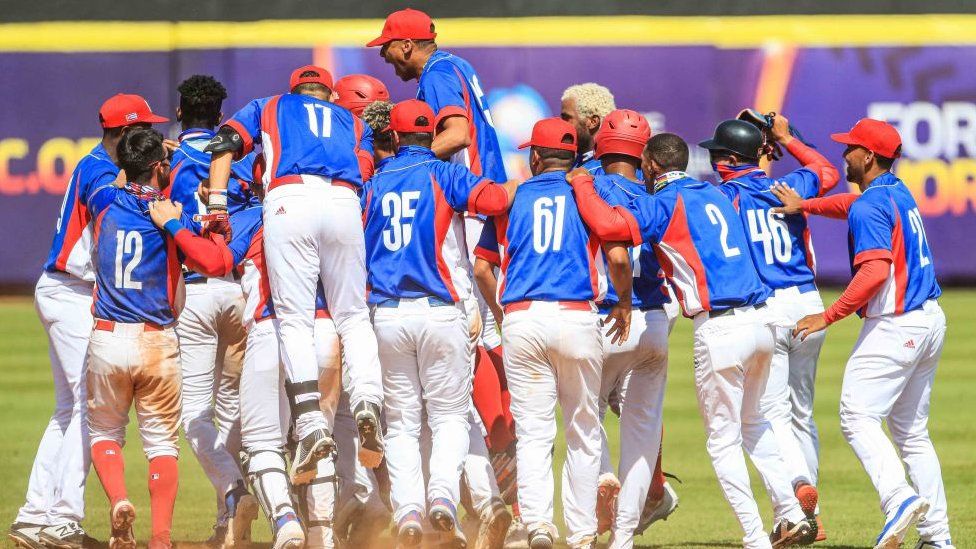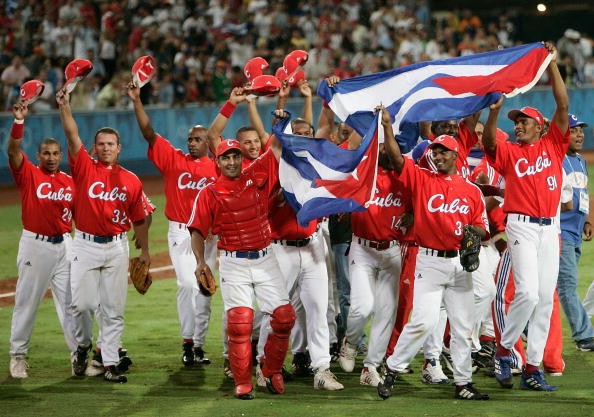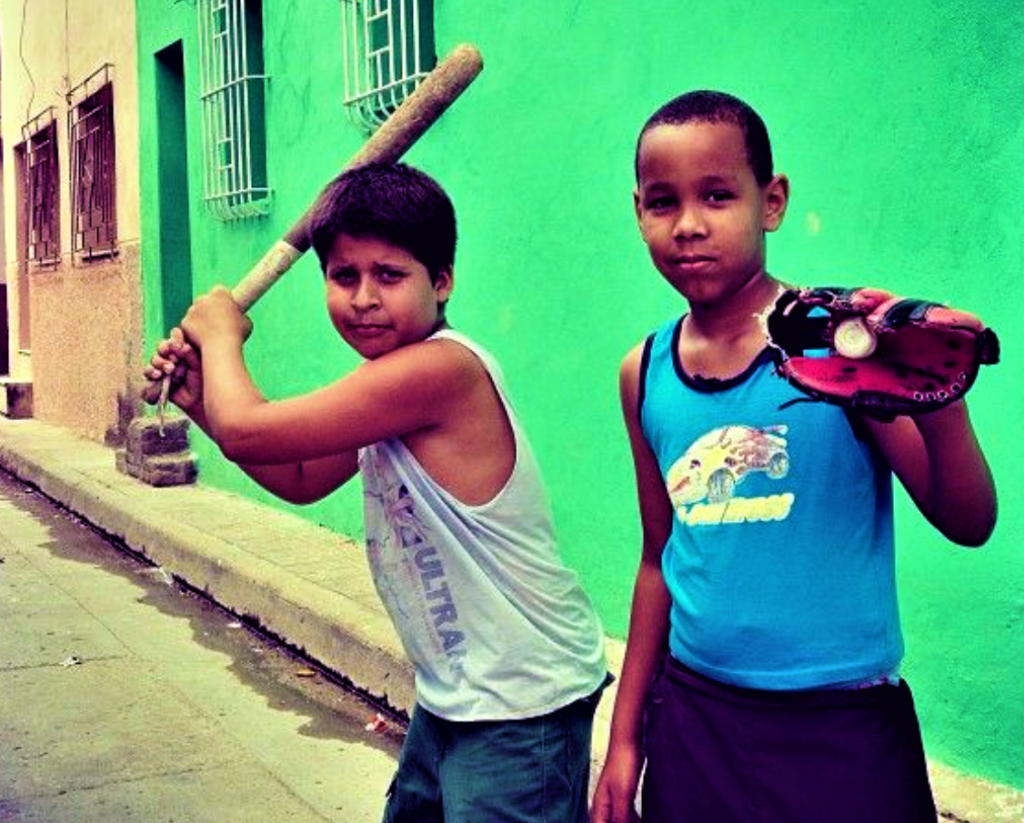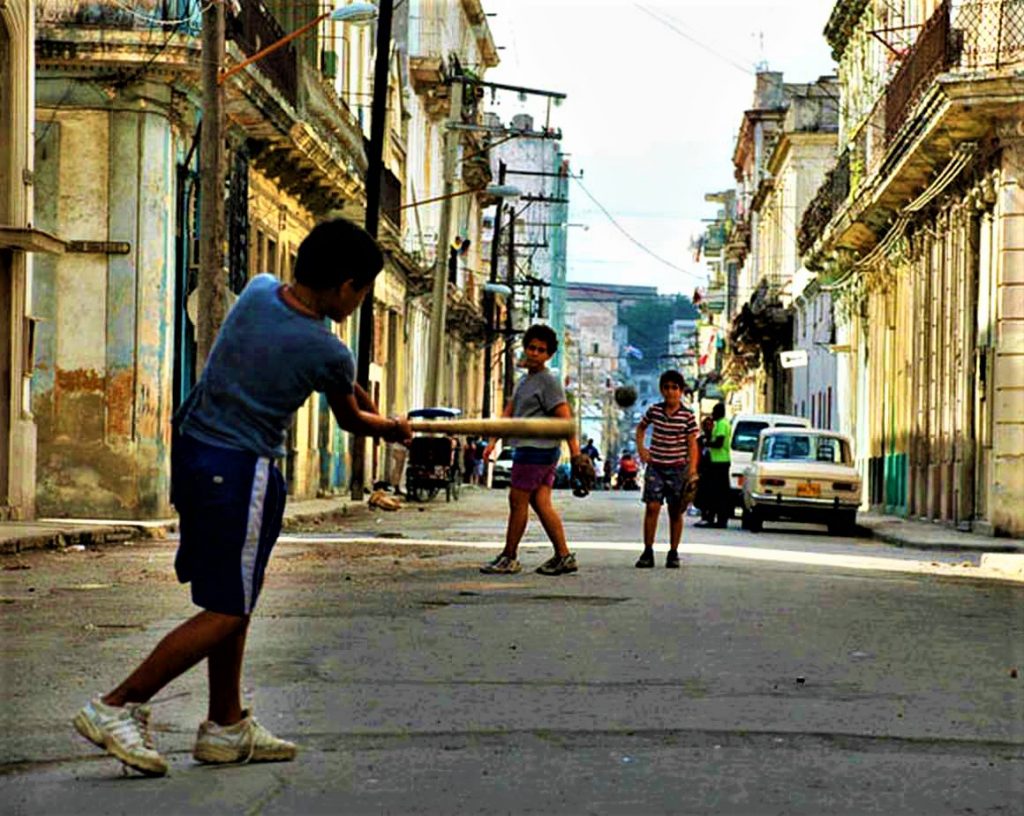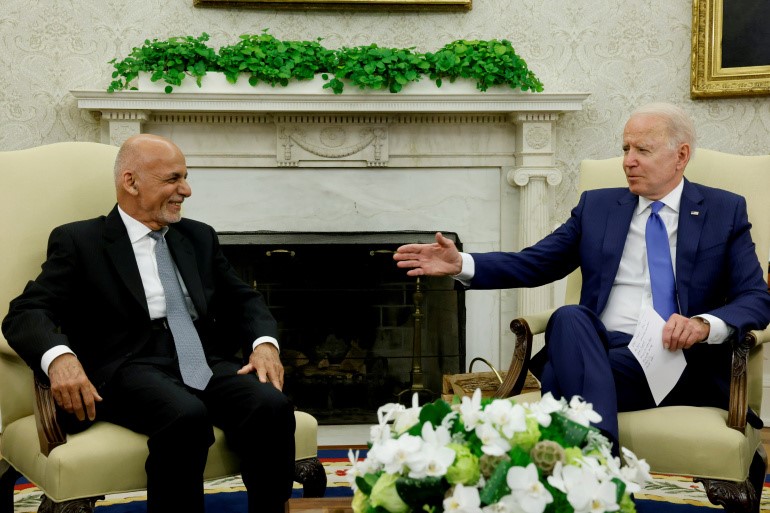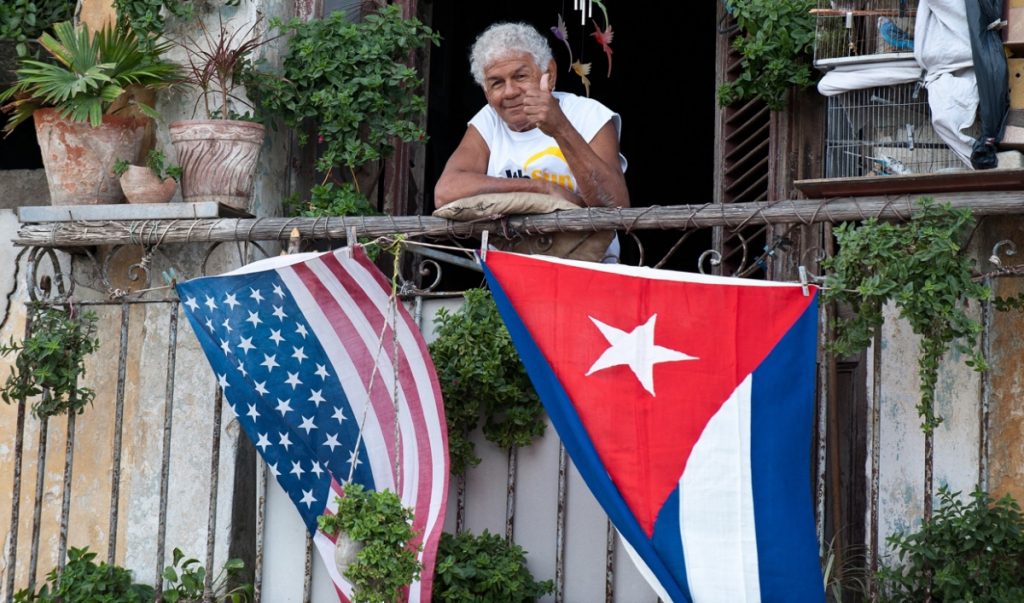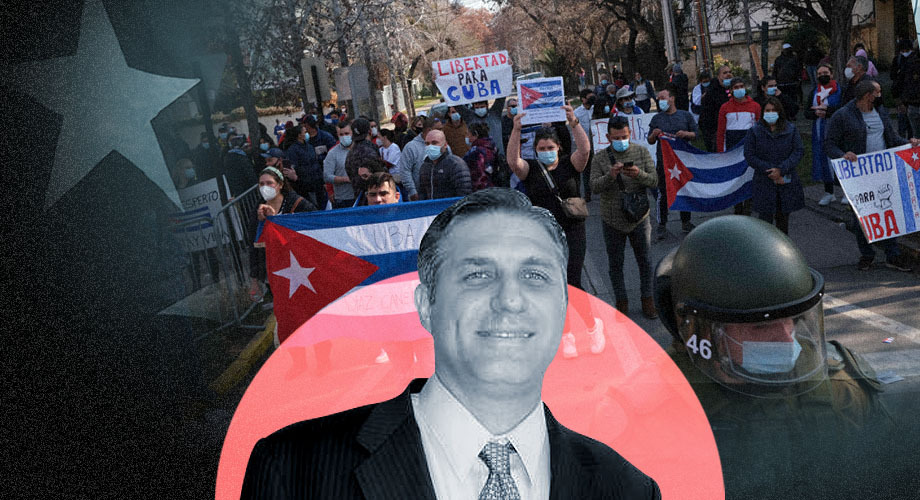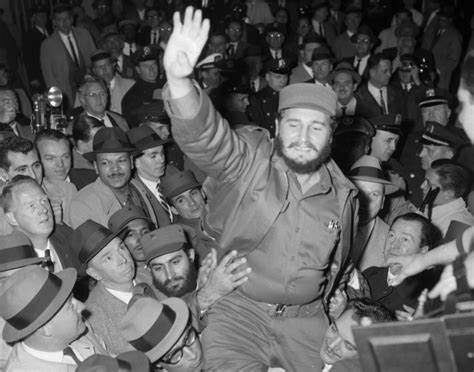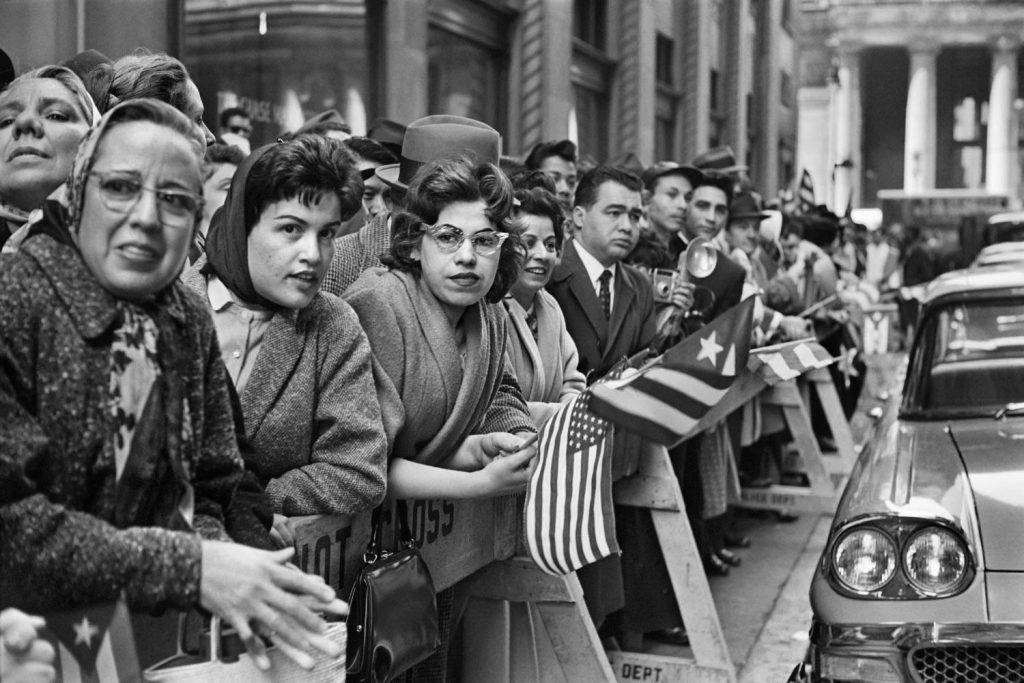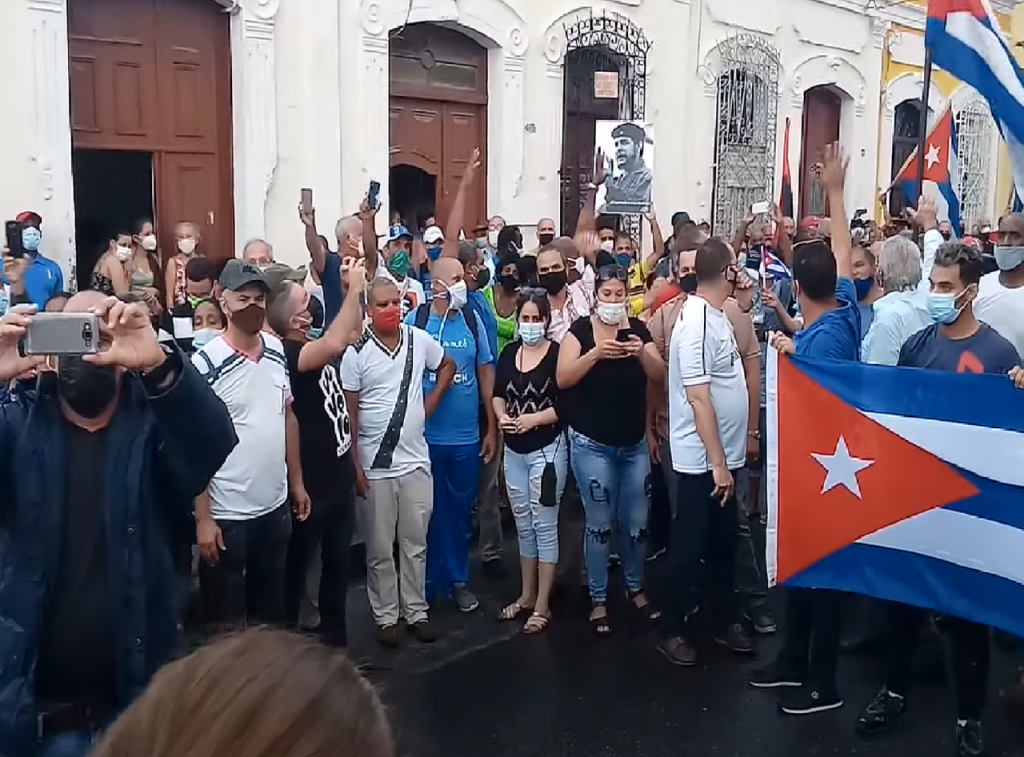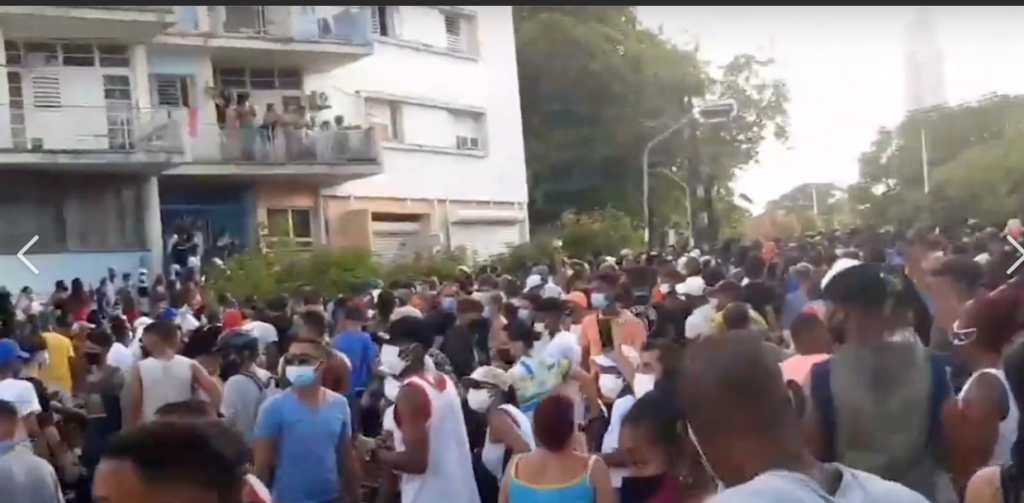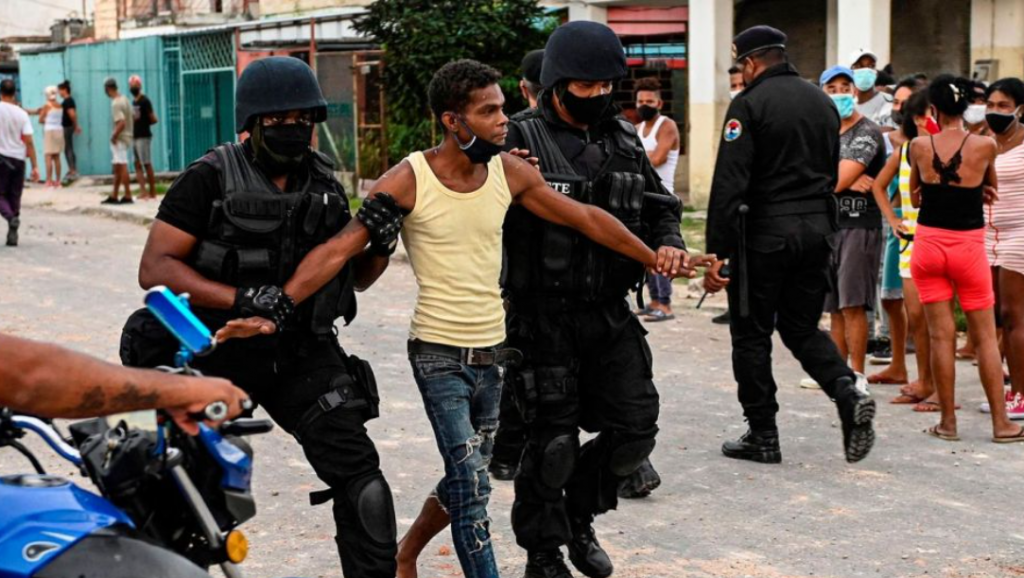As much as the US embargo contributes to its problems, Cuba’s historic protests show that the government can’t ignore citizens’ legitimate demands
International Politics and Society, 23.08.2021 |
Carlos Alzugaray
Original Article: “Not Just the Us Embargo”
After protests swept the whole country in July, the Cuban government has started taking measures to contain the fallout. While this response goes beyond the regime’s initial repression, it hasn’t yet entirely left that path. If the country’s leadership wants to survive this test, it has no choice but to respond to citizens’ legitimate demands.
Whether
one may like it or not, the events of 11 July 2021 will have an effect on how
Cubans themselves and their country. For most of the population, it was a sad
day – and most people would rather not remember the sad days. But it cannot be
ignored. At present, information about what actually happened is still patchy;
it is difficult to navigate between fake news and the official versions of
events.
What has
been established is that, on Sunday 11July, there were widespread
anti-government protests, some of which ended in violence – and this had never
happened before in Cuba. As such, many observers and indeed the authorities
themselves were surprised. The result was images of violence and a situation
which had escalated out of control. Whatever the details, this is objectively
damaging for the Cuban government: and even if, as looks unlikely, the
situation settles back down, the reputational damage will last.
NOT A SURPRISE
Actually,
the Cuban government shouldn’t have been surprised by the course of events –
this being the same government that had for months been talking up the
possibility of a ‘soft coup’ or a ‘colour revolution’ planned across the water
by its arch-enemy, the US. Perhaps it was the surprise of something actually
happening that led the government to clamp down so repressively, while pursuing
the same endless propaganda communication strategy as ever despite its
demonstrably diminishing returns.
It’s
equally surprising that this unrest did not surface much earlier, considering
the privations to which the Cuban population has long been subject and which
have been further worsened by the pandemic.
Thanks to
the social progress of the early years and Cuba’s international high profile,
unrest in the country was staved off.
Now, the
unrest is here – and its effect is palpable. Just three months after the Eighth
Congress of the Communist Party and two years after establishing a new
constitution, the new Cuban leadership finds itself in crisis. A crisis that,
in many ways, evokes the situation in the socialist countries of eastern Europe
just prior to their collapse.
CUBA’S EARLY ACHIEVEMENTS
There
are, however, several differences. Cuba is a third-world country which, after
years of neo-colonial suppression, liberated itself by means of a national
revolution. As the result of an aggressive confrontation with Washington, this
revolution became increasingly radical – and was initially successful, too, in
its goal of halting the advance of US imperialism. The result was a socialist
model that because of an alliance with the Soviet Union offered considerable
advantages for at least the next three decades.
Thanks to
the social progress of the early years and Cuba’s international high profile,
unrest in the country was staved off. Essentially, the fact that the socialist
regime not only survived a direct confrontation with the US but went on to
become a unique actor on the world stage – not only during the Cold War, but
beyond – conferred considerable credit on the government and allowed it freedom
of manoeuvre in domestic issues.
These
achievements and successes are without doubt the foundation of Cuban regime’s
resilience and its people’s stoicism in the face of lasting and quite
extraordinary difficulties. Yet while these difficulties certainly are caused
by the US embargo, they are in no small part also the result of governmental
inadequacy and poor policy. When it comes to the role of the country’s
political opposition, the situation is similar. Certainly, some groups are
being supported from the US with a view to subverting the Cuban regime.
THE DOMESTIC OPPOSITION
Yet
during the unrest, the activists with US support were less visible than those
of the country’s domestic Movimiento San Isidro and 27N groupings. Then again,
there is no doubt about the fact that protests were encouraged on social media
– to no small degree by political influencers who do not live in Cuba, but
rather mainly in Miami, where militant anti-Castro activism remains an
important local industry financed from a range of state and non-state sources.
In Cuban national reality, social media has become a toxic element as millions
of dollars are pumped into fake-news campaigns aiming to destabilise the
regime.
Even if,
however, the trigger came from outside, unrest would not have flared up if it
had, inside Cuba, not found fertile ground prepared by numerous political
mistakes on the part of the government. Here, a range of factors played a role:
in the poorest urban areas, conditions had worsened considerably; overall, food
supply had become increasingly erratic; and after a successful start in
combating the pandemic, the situation in healthcare was becoming unstable.
The
government reacted by proclaiming that ‘the embargo is the problem’ and talking
down the protests as ‘interference from outside’ in an effort to cover up its
own errors. What the regime has underestimated is the dissatisfaction that this
mantra now provokes. Certainly, the sanctions upheld against Cuba by the US for
almost 60 years now represent, to paraphrase US historian Peter Beinart, a kind
of economic war against a country under siege. Beinart is right to criticise
the embargo as a non-military act of war – and one which, given that the stated
aim has always been regime change, has never had much prospect of success. And
while Washington refutes Cuban accusations, it is a simple matter of fact that
Joe Biden has maintained sanctions imposed by Donald Trump even as the pandemic
has continued to rage.
Continuing
to place all the blame on external factors without any real introspection in
respect of home-grown issues would be a grave mistake.
Yes, for
more than six months now, the Biden Administration has failed to make good on
its manifesto promise and remains locked in the Trumpian version of Republican
Party logic vis-à-vis Cuba policy – the illusion that ever more extreme
sanctions will eventually succeed in dislodging the regime which came to power
in 1959. So this much seems likely: sanctions against Cuba will remain in place
for the next three years; Cubans will get even poorer; the Cuban government will
continue to be bullied.
THE CUBAN GOVERNMENT NEEDS A RETHINK
In view of this, Havana is currently trying to contain the fallout. Yet the regime needs to examine the political and social situation – and grasp that only economic policy focusing on efficiency and activating domestic productive capacity can get the country out of the current crisis. Continuing to place all the blame on external factors without any real introspection in respect of home-grown issues would be a grave mistake. The reforms the government has promised, especially in respect of food distribution, need to be enacted – fast.
The issue
of how to deal with the figureheads of the protests adds another layer of
complexity to the situation. The government cannot allow the impression to develop
that, either at home or abroad, it is cracking down hard on peaceful
demonstrations. Yet currently, there are rumours about summary justice and
questionable court proceedings leading to sentences of ten to twelve months for
people who, in many cases, do not seem to have been involved in any acts of
violence. This comes for Cubans who have only recently had the important
experience of debating and then approving a new constitution in which the
importance of fair trials is underscored. Now more than ever, citizens are
demanding nothing more – and nothing less – than that the police act within the
law.
The Cuban
government, too, needs to rethink how it works. As its population is
increasingly deaf to the argument that the embargo is the root of all evil, it
needs to make a serious attempt to overcome two key political-ideological
obstacles in its way. Firstly, there is the outdated approach to socialism as a
system primarily steered from central planning bureaus; this dogmatic dirigisme
reduces the role of the market in distributing resources to a minimum – with
all the attendant problems. Secondly, the regime needs to distance itself from
an idea of socialism as an authoritarian model that can ignore or even
criminalise those whose criticism is intended to make the country’s economy
more efficient and its society more democratic, to see its 2019 constitution
enacted and establish the rule of law.
A WHOLE NEW MOMENT FOR CUBA
Yet the
regime’s reaction to the events of 11 July as communicated official media channels
showed no signs of overcoming this tendency. Those who took part in the
protests have been discredited and decried as criminal elements – overlooking
the specific and legitimate demands made by many in a peaceful manner. This may
come back to haunt the regime.
These
demonstrations represent a wholly new development for Cuba and make clear just
what difficulties the country’s society is facing.
Furthermore, official announcements have sought to justify the use of repressive violence – a message with which many Cubans who, while not directly involved, have observed (and been shocked by) events, strongly disagree. Internationally, Cuba’s image has taken a hit. There is still no clarity about the number of demonstrations or how they played out, how many took part, and how many participants have been placed under arrest. Meanwhile, intellectuals and artists have publicly denounced the regime’s repressive course, with many demanding the release of all peaceful protestors – including such figures as songwriter Silvio Rodríguez, who enjoys a great deal of respect among many in government.
The lack
of genuine information is leaving space for disinformation to circulate around
both external actors and the country’s population – disinformation spread with
the aim of undermining the government. At the same time, Cuban citizens have
broadly accepted the precept that peaceful protests are legitimate and should
be protected under law. This is a precept with which the government, however,
in clear contravention of the principal of a socialist country under the rule
of law, does not agree. This is not sending the right message – neither on a
domestic nor international level.
These
demonstrations represent a wholly new development for Cuba and make clear just
what difficulties the country’s society is facing. These difficulties have been
further aggravated by a US embargo which continues to impoverish the Cuban
population and exert pressure on the country’s government. The current
situation represents a stress-test for the Cuban regime, which would do well to
remember that, when faced with similar situations, like-minded politicians had
more success when they decided to pursue a path of generosity and listen to
citizens’ legitimate concerns rather than leaving demands to fall on deaf ears.
The
Spanish version of this article appeared in Nueva Sociedad.
